Melanie W. Sisson testified before the House Armed Services Committee on February 7, 2023, during its hearing on “The Pressing Threat of the Chinese Communist Party to U.S. National Defense.” Video of the hearing can be found here. Read the testimony below.
Chairman Rogers, Ranking Member Smith, members of the Committee, thank you for inviting me here today to support your efforts to assess and respond to the threat of the Chinese Communist Party to U.S. national defense.
Under the rule of the Chinese Communist Party (CCP), the People’s Republic of China (PRC) is seeking to expand its influence culturally, economically, politically, and militarily. It has used illicit and illegal means to advantage its economy, it has been obstructionist in multilateral organizations and on critical transnational issues such as climate and health, and it has not only improved the capabilities of its armed forces, the People’s Liberation Army (PLA), but also has used those forces to advance discredited territorial and resource claims and to threaten and intimidate its neighbors.
Advances in the capabilities of the PLA, together with the CCP’s longstanding interest in unification with the democratically self-governing island of Taiwan, have energized concern about China’s near-term intentions toward the island and about the role of the United States in cross-Strait relations. Since 1979 the United States has adopted a constellation of official positions, together known as the “One-China Policy,” that allows us to acknowledge but not to accept China’s perspective that there is one China, and that Taiwan is part of China. Under the One-China policy, the United States has developed robust unofficial relations with the government and people of Taiwan, consistent with our interest in preserving peace and stability in the Taiwan Strait.
U.S. policy is guided by an interest in ensuring cross-Strait disputes are resolved peacefully and in a manner that reflects the will of Taiwan’s people. This has required the United States to deter Taiwan from declaring independence, and also to deter the CCP from attempting unification by force. The 40-year success of this strategy of dual deterrence rests upon the unwillingness of the United States to provide either an unconditional commitment to Taipei that it will come to its defense militarily, or an unconditional commitment to Beijing that it will not.
The U.S. national security interest in the status of Taiwan remains that the CCP and the people of Taiwan resolve the island’s political status peacefully. Dual deterrence therefore remains the U.S. strategy, reinforced by U.S. declaratory policy, which is to “oppose unilateral changes to the status quo by either side.”
The modernization of the PLA has changed the regional military balance significantly enough that the United States no longer can be confident that it would decisively defeat every type of PLA use of force in the Taiwan Strait. This fact, however, does not necessitate that the United States abandon its strategy of dual deterrence, and it does not mean that the United States should seek to reconstitute its prior degree of dominance.
Posturing the U.S. military to convince the CCP that the PLA could not succeed in any and every contingency over Taiwan is infeasible in the near term, and likely beyond. The PLA’s advances are considerable and ongoing, geography works in its favor, and history demonstrates that it is far easier to arrive at an overconfident assessment of relative capability than it is to arrive at an accurate one. Attempting to demonstrate superiority for all contingencies would require a commitment of forces that would inhibit the United States from behaving like the global power that it is, with global interests to which its military must also attend. This posture, moreover, is not necessary for dual deterrence to extend its 40-year record of success.
We can instead encourage the government of Taiwan to adopt a defense concept that forces the PLA into suboptimal strategies and increases the battle damage Beijing would have to anticipate and accept. The CCP should also be reminded that in addition to retaining the option of direct U.S. military engagement, U.S. military superiority in the Persian Gulf and Indian Ocean allows us to threaten the maritime shipping upon which China depends for access to energy, global markets, and supply chains. The inevitable damage a use of force would cause to the global economy, and the imposition of sanctions and restricted access to critical inputs needed to sustain China’s economic development and the quality of life of its people, moreover, would certainly compound China’s losses.
The CCP should have no illusion, however, that it can inflict a first strike on the United States that prevents us from joining in the defense of Taiwan. Militarily, this will require the armed services to develop concepts of operation that maximize the effects of dispersal, mobility, and localized decisionmaking and to make investments in the portable and expendable assets that those concepts require — uncrewed systems that launch sensors and anti-ship missiles without the need for runways that are difficult to defend, for example. The Department of Defense must also prioritize improving the resilience of its command, control, and communication systems against disabling electronic and cyberattacks.
These and related measures will position the United States not only to implement its strategy of dual deterrence in the Taiwan Strait, but also will prepare it to detect and respond to Chinese incrementalism throughout the Western Pacific and beyond. Plentiful surveillance, resilient command and control, and small, situationally aware, mobile deployments are necessary for the armed forces to minimize opportunities for the PLA to engage in unlawful and coercive actions, and to deny it gains when it does.
The U.S.-China contest is definitionally strategic: its outcome will be determined by the respective abilities of the CCP and the government of the United States to marshal all instruments of national power and to deploy them in a comprehensive, well-executed grand strategy. It is therefore essential that Congress ensures the Department of Defense is equipped in concept and in capability to deter PLA aggression regionally, and to shape and constrain the geopolitical conditions within which the CCP pursues its objectives globally.
The Brookings Institution is committed to quality, independence, and impact.
We are supported by a diverse array of funders. In line with our values and policies, each Brookings publication represents the sole views of its author(s).
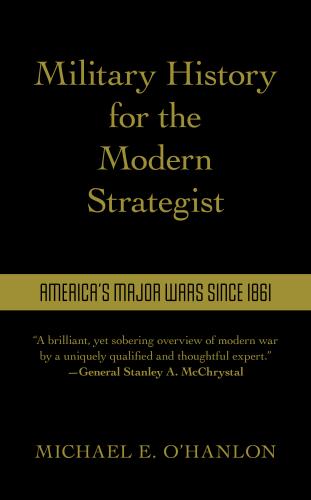
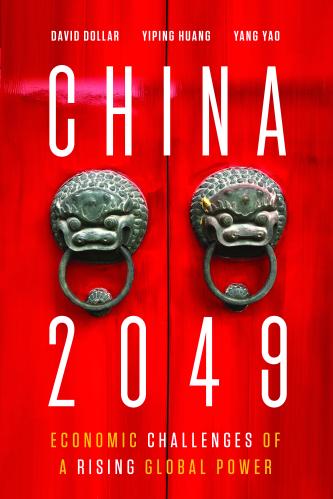
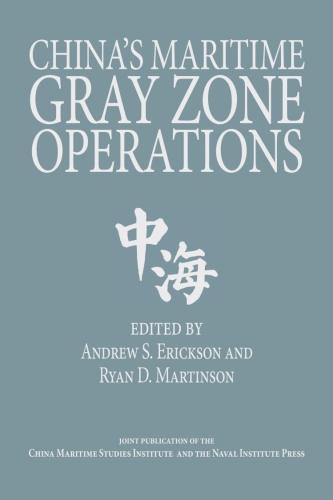

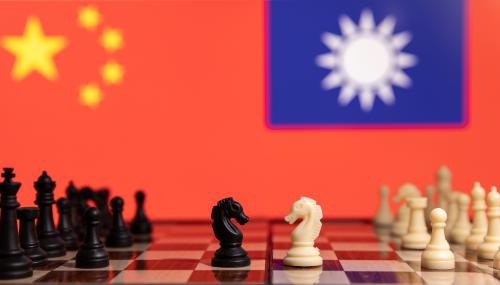
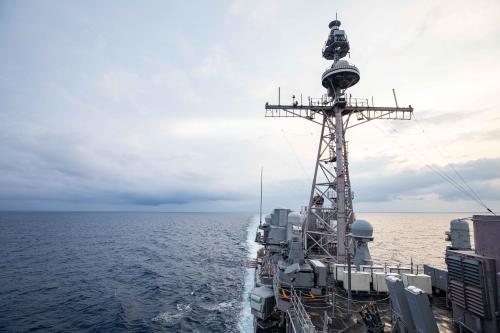




Commentary
TestimonyThe pressing threat of the Chinese Communist Party to US national defense
February 9, 2023